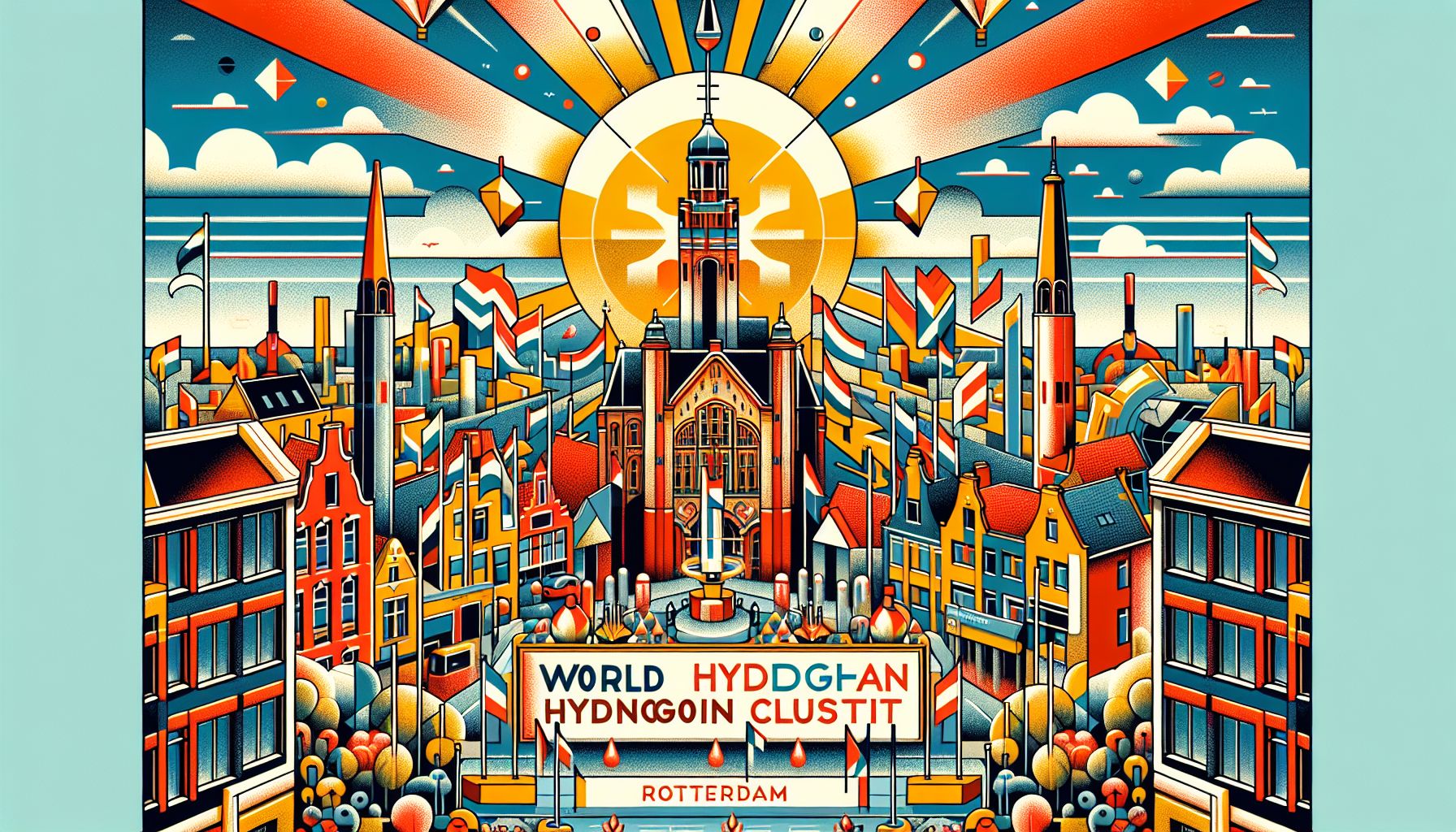Dutch-German hydrogen cluster launched at World Hydrogen Summit

The World Hydrogen Summit in Rotterdam unveils a Dutch-German hydrogen cluster to foster innovation in hydrogen technology between the Netherlands and Germany.
A New Era of Hydrogen Collaboration
At the forefront of the World Hydrogen Summit, a significant step was taken towards a sustainable future with the introduction of a Dutch-German hydrogen cluster. This initiative is a component of the expansive TECH.LAND project, which aims to leverage innovation and cross-border cooperation to address global hydrogen technology challenges. The cluster, coordinated by Wirtschaftsförderung Kreis Coesfeld, Oost NL, WiN Emscher-Lippe, and supported by Technologieförderung Münster, brings together over 100 organizations, including businesses, research institutes, and governmental bodies from the East Netherlands, Emscher-Lippe, and Münsterland regions[1].
The Power of Hydrogen in Tackling Climate Change
The collaborative hydrogen cluster is driven by the shared goal of using hydrogen as a key tool to combat climate change and revolutionize the energy system. Proximity to industrial hubs and a history of cross-border collaboration give these European regions a unique advantage in pioneering clean energy projects. Noteworthy examples include the ‘Bioenergiepark Saerbeck,’ ‘GldH2,’ ‘GROWH,’ and ‘h2herten,’ as well as industrial clusters like ‘Klimahafen Gelsenkirchen,’ ‘H2Hub Twente,’ and ‘Connectr Energy Innovation’[1]. These projects demonstrate practical applications of hydrogen technology, contributing to cleaner energy, transportation, and heating systems.
Catalyzing Green Innovation Through Shared Expertise
The cluster’s formation is emblematic of the crucial role that international collaboration plays in solving complex societal challenges. By pooling resources, knowledge, and talents, the regions aim to create a more sustainable living and working environment. This partnership also nurtures a learning environment for educational institutions and companies on both sides of the Dutch-German border, fostering innovation and knowledge transfer within the hydrogen sector[1].
Global Context and Industry Implications
The establishment of the Dutch-German hydrogen cluster occurs against a backdrop of global urgency to decarbonize heavy industries. The iron and steel industry, for instance, accounts for approximately 6% of global CO2 emissions and 8% of energy-related emissions. With the traditional blast furnace-basic oxygen furnace (BF-BOF) method constituting 71% of steel production and proving difficult to decarbonize, alternative methods such as electric arc furnaces (EAF) and direct reduced iron to electric arc furnace (DRI-EAF) production are being explored. Hydrogen, particularly blue hydrogen, is identified as a cost-effective and technically mature option to aid decarbonization efforts[2].
Synergizing with Aviation for Sustainable Futures
The hydrogen cluster’s vision aligns with other sectors striving for sustainability, such as aviation. Deutsche Aircraft, for example, is exploring the climate impacts of aviation with its UpLift D328® aircraft, aiming for climate-friendly flights. The UpLift program, supported by the German government and led by DLR, reflects the industry’s movement towards green technologies and the importance of collaborative research and development[3].

